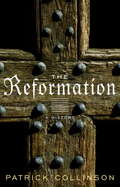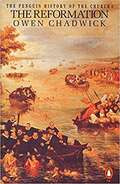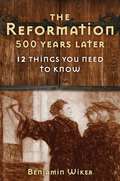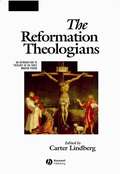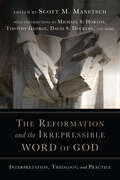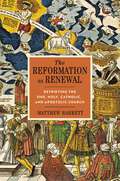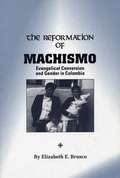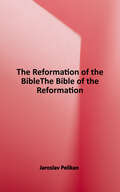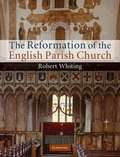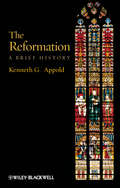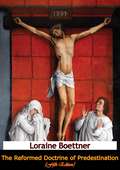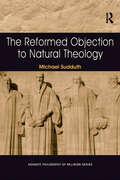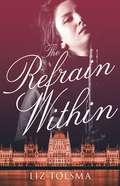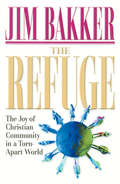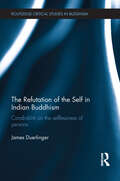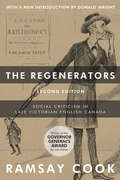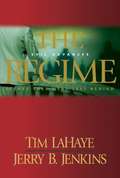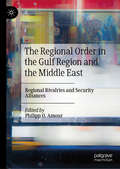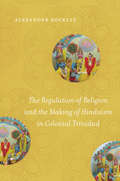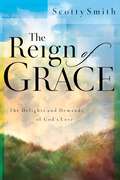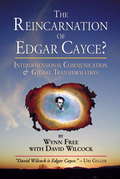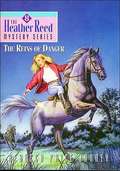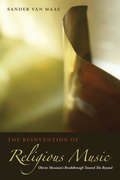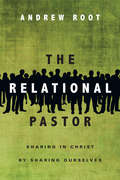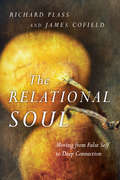- Table View
- List View
The Reformation
by Patrick Collinson“No revolution however drastic has ever involved a total repudiation of what came before it. ” The religious reformations of the sixteenth century were the crucible of modern Western civilization, profoundly reshaping the identity of Europe’s emerging nation-states. InThe Reformation, one of the preeminent historians of the period, Patrick Collinson, offers a concise yet thorough overview of the drastic ecumenical revolution of the late medieval and Renaissance eras. In looking at the sum effect of such disparate elements as the humanist philosophy of Desiderius Erasmus and the impact on civilization of movable-type printing and “vulgate” scriptures, or in defining the differences between the evangelical (Lutheran) and reformed (Calvinist) churches, Collinson makes clear how the battles for mens’ lives were often hatched in the battles for mens’ souls. Collinson also examines the interplay of spiritual and temporal matters in the spread of religious reform to all corners of Europe, and at how the Catholic Counter-Reformation used both coercion and institutional reform to retain its ecclesiastical control of Christendom. Powerful and remarkably well written,The Reformationis possibly the finest available introduction to this hugely important chapter in religious and political history. From the Hardcover edition.
The Reformation (The Penguin History of the Church #Volume 3)
by Owen ChadwickOwen Chadwick stands out as the trustsed authority on Reformation history. Not only is his scholorly knowledge outlined with enough precision to impress any aspiring historian, but Chadwick also manages to convey the facts with a level of underlying passion.
The Reformation 500 Years Later: 12 Things You Need to Know
by Benjamin Wiker2017 is the 500th year anniversary of Martin Luther’s nailing his Ninety-five Theses to the door of Castle Church in Wittenberg, Germany, the event marking the beginning of the Reformation—and the end of unified Christianity. For Catholics, it was an unjustified rebellion by the heterodox. For Protestants, it was the release of true and purified Christianity from centuries-old enslavement to corruption, idolatry, and error. So what is the truth about the Reformation? To mark the 500th anniversary, historian Benjamin Wiker gives us 12 Things You Need to Know About the Reformation, a straight-forward account of the world-changing event that rejects the common distortions of Catholic, Protestant, Marxist, Freudian, or secularist retellings.
The Reformation Theologians: An Introduction to Theology in the Early Modern Period
by Carter LindbergThe Reformation Theologians is the ideal introduction to the study of the sixteenth-century Reformations. It introduces the theological context, though, and contributions of theologians from this period, offering students and scholars an essential resource and insight. This comprehensive and lively book discusses all the major strands of Reformation thought and explores the work of a range of influential figures, including theologians and non-theologians, humanists, clergy and laity, men and women. The contributors to this volume are leading scholars in the field of historical and systematic theology. Accessibly structured, it covers the Humanist, Lutheran, Reformed, Roman Catholic, and "Radical" Theologians. An introductory chapter explores the interpretations of the Reformation and a concluding chapter explains the influence of Reformation theologies on the modern period. The text also includes useful bibliographies and a glossary of theological terms.
The Reformation and the Irrepressible Word of God: Interpretation, Theology, and Practice
by Scott M. ManetschAccording to Scripture, the Word of God is "living and active" (Heb 4:12). That affirmation was embraced by the Protestant Reformers, whose understanding of the Christian faith and the church was transformed by their encounter with Scripture. It is also true of the essays found in this volume, which brings together the reflections of church historians and theologians originally delivered at Trinity Evangelical Divinity School on the occasion of the 500th anniversary of the Reformation. As they consider historical, hermeneutical, theological, and practical issues regarding the Bible, these essays reveal that the irrepressible Word of God continues to transform hearts and minds.
The Reformation as Renewal: Retrieving the One, Holy, Catholic, and Apostolic Church
by Matthew BarrettA holistic, eye-opening history of one of the most significant turning points in Christianity, The Reformation as Renewal demonstrates that the Reformation was at its core a renewal of evangelical catholicity.In the sixteenth century Rome charged the Reformers with novelty, as if they were heretics departing from the catholic (universal) church. But the Reformers believed they were more catholic than Rome. Distinguishing themselves from Radicals, the Reformers were convinced they were retrieving the faith of the church fathers and the best of the medieval Scholastics. The Reformers saw themselves as faithful stewards of the one, holy, catholic, and apostolic church preserved across history, and they insisted on a restoration of true worship in their own day.By listening to the Reformers' own voices, The Reformation as Renewal helps readers explore:The Reformation's roots in patristic and medieval thought and its response to late medieval innovations.Key philosophical and theological differences between Scholasticism in the High Middle Ages and deviations in the Late Middle Ages.The many ways sixteenth and seventeenth century Protestant Scholastics critically appropriated Thomas Aquinas.The Reformation's response to the charge of novelty by an appeal to the Augustinian tradition.Common caricatures that charge the Reformation with schism or assume the Reformation was the gateway to secularism.The spread of Reformation catholicity across Europe, as seen in first and second-generation leaders from Luther and Melanchthon in Wittenberg to Zwingli and Bullinger in Zurich to Bucer and Calvin in Strasbourg and Geneva to Tyndale, Cranmer, and Jewel in England, and many others.The theology of the Reformers, with special attention on their writings defending the catholicity of the Reformation. This balanced, insightful, and accessible treatment of the Reformation will help readers see this watershed moment in the history of Christianity with fresh eyes and appreciate the unity they have with the church across time. Readers will discover that the Reformation was not a new invention, but the renewal of something very old.
The Reformation of Machismo: Evangelical Conversion and Gender in Colombia
by Elizabeth E. BruscoProtestant evangelicalism has spread rapidly in Latin America at the same time that foreign corporations have taken hold of economies there.<P><P> These concurrent developments have led some observers to view this religious movement as a means of melding converts into a disciplined work force for foreign capitalists rather than as a reflection of conscious individual choices made for a variety of personal, as well as economic, reasons. In this pioneering study, Elizabeth Brusco challenges such assumptions and explores the intra-household motivations for evangelical conversion in Colombia. She shows how the asceticism required of evangelicals (no drinking, smoking, or extramarital sexual relations are allowed) redirects male income back into the household, thereby raising the living standard of women and children. This benefit helps explain the appeal of evangelicalism for women and questions the traditional assumption that organized religion always disadvantages women. Brusco also demonstrates how evangelicalism appeals to men by offering an alternative to the more dysfunctional aspects of machismo. Case studies add a fascinating human dimension to her findings. With the challenges this book poses to conventional wisdom about economic, gender, and religious behavior, it will be important reading for a wide audience in anthropology, women's studies, economics, and religion. For all students of Latin America, it offers thoughtful new perspectives on a major, grass-roots agent of social change.
The Reformation of the Bible/The Bible of the Reformation
by Jaroslav Pelikan David Price Valerie R. HotchkissIt is equally true that the Reformation was inspired and defined by the Bible and that the intellectual, political and cultural forces of the Reformation reshaped the Bible. This work explores the level of influence each had upon the other.
The Reformation of the English Parish Church
by Robert WhitingIn the sixteenth century, the people of England witnessed the physical transformation of their most valued buildings: their parish churches. This is the first ever full-scale investigation of the dramatic changes experienced by the English parish church during the English Reformation. By drawing on a wealth of documentary evidence, including court records, wills and church wardens' accounts, and by examining the material remains themselves such as screens, fonts, paintings, monuments, windows and other artefacts found in churches today, Robert Whiting reveals how, why and by whom these ancient buildings were transformed. He explores the reasons why Catholics revered the artefacts found in churches as well as why these objects became the subject of Protestant suspicion and hatred in subsequent years. This richly illustrated account sheds new light on the acts of destruction as well as the acts of creation that accompanied religious change over the course of the 'long' Reformation.
The Reformation: A Brief History (Wiley Blackwell Brief Histories of Religion #41)
by Kenneth G. AppoldThe Reformation: A Brief History is a succinct and engaging introduction to the origins and history of the Protestant Reformation. A rich overview of the Reformation, skillfully blending social, political, religious and theological dimensions A clearly and engagingly written narrative which draws on the latest and best scholarship Includes the history of the Reformation in Scandinavia and Eastern Europe, areas that are rarely covered in any detail The Reformation is placed in the context of the entire history of Christianity to draw out its origins, impetus, and legacy
The Reformed Doctrine of Predestination [Fifth Edition]
by Loraine BoettnerFirst published in 1941, this is the Fifth Edition of Loraine Boettner’s 1932 publication The Reformed Doctrine of Predestination and is widely considered to be one of the 20th-century’s most reasoned explanations of the sovereignty of God and the Reformed interpretation of salvation.“THE purpose of this book is not to set forth a new system of theological thought, but to give a restatement to that great system which is known as the Reformed Faith or Calvinism, and to show that this is beyond all doubt the teaching of the Bible and of reason.”—Loraine Boettner, Introduction“Whoever really wants to know what Calvinism teaches cannot do better than to read this book from cover to cover”.—United Presbyterian magazine
The Reformed Objection to Natural Theology (Routledge Philosophy of Religion Series)
by Michael SudduthMichael Sudduth examines three prominent objections to natural theology that have emerged in the Reformed streams of the Protestant theological tradition: objections from the immediacy of our knowledge of God, the noetic effects of sin, and the logic of theistic arguments. Distinguishing between the project of natural theology and particular models of natural theology, Sudduth argues that none of the main Reformed objections is successful as an objection to the project of natural theology itself. One particular model of natural theology - the dogmatic model - is best suited to handle Reformed concerns over natural theology. According to this model, rational theistic arguments represent the reflective reconstruction of the natural knowledge of God by the Christian in the context of dogmatic theology. Informed by both contemporary religious epistemology and the history of Protestant philosophical theology, Sudduth’'s examination illuminates the complex nature of the project of natural theology and its place in the Reformed tradition.
The Refrain Within (Music of Hope #3)
by Liz TolsmaTo save a life, would you betray everyone you love?Hungary in 1944 is a dark place. The Nazis have invaded and turned the country upside down, their evil making its way into every life.Clarinetist Eva Bognar is engaged to conductor and composer Patrik Kedves, happily planning her wedding. At first she doesn’t think the war will affect her directly; everyone around her can be trusted to do the right thing. Then her Jewish best friend and sister-in-law Zofia goes missing--and instead of the Gestapo being to blame, a friend says it was Patrik who led Zofia away. Has he betrayed Eva and everything the family stands for?When the rest of the family’s lives are directly threatened, Patrik’s secrets must come to light. The Bognars flee for the border in hopes of getting out of the country to the safety of Palestine. Eva must put her life and the lives of everyone she loves in the hands of the very man who betrayed her--and they may not all make it out of the war alive . . .
The Refuge: The Joy Of Christian Community In A Torn-apart World
by Jim BakkerWhen your world comes crashing down around you there is only one place of safety-the Refuge. Convinced that many Christians are already experiencing tough times, Jim Bakker offers hope to believers, showing how to make it through the dark nights and difficult days ahead. Security will not be in money or materialism; it will be in Christ and His family, working to overcome the obstacles in life. Drawing upon lessons he learned the hard way, Bakker encourages Christians to gather together in one accord, to bear one another's burdens, to open our hearts to a fresh outpouring of God's supernatural presence in our midst. His call for "first-century Christianity" in the twenty-first century is radical, challenging, thoroughly biblical, and inspiring.
The Refutation of the Self in Indian Buddhism: Candrakīrti on the Selflessness of Persons (Routledge Critical Studies in Buddhism)
by James DuerlingerSince the Buddha did not fully explain the theory of persons that underlies his teaching, in later centuries a number of different interpretations were developed. This book presents the interpretation by the celebrated Indian Buddhist philosopher, Candrakīrti (ca. 570–650 C.E.). Candrakīrti’s fullest statement of the theory is included in his Autocommentary on the Introduction to the Middle Way (Madhyamakāvatārabhasya), which is, along with his Introduction to the Middle Way (Madhyamakāvatāra ), among the central treatises that present the Prāsavgika account of the Madhyamaka (Middle Way) philosophy. In this book, Candrakīrti’s most complete statement of his theory of persons is translated and provided with an introduction and commentary that present a careful philosophical analysis of Candrakīrti’s account of the selflessness of persons. This analysis is both philologically precise and analytically sophisticated. The book is of interest to scholars of Buddhism generally and especially to scholars of Indian Buddhist philosophy.
The Regenerators, 2nd Edition: Social Criticism in Late Victorian English Canada
by Ramsay Cook Donald A. WrightA crisis of faith confronted many Canadian Protestants in the late nineteenth century. With their religious beliefs challenged by the new biological sciences and historical criticism of the Bible, they turned from personal salvation to the dire social problems of the industrial age. The Regenerators explores the nature of social criticism in this era and its complex ties to the religious thinking of the day, showing how the path blazed by nineteenth-century religious liberals led not to the Kingdom of God on earth, but, ironically, to the secular city.The winner of the Governor General's Literary Award for Non-Fiction when it was first published in 1985, The Regenerators became an instant classic for its fascinating portraits of evolutionists, rationalists, spiritualists, socialists, and free thinkers before the turn of the century. This new edition features an introduction by historian and biographer Donald Wright.
The Regime: Before They Were Left Behind
by Tim Lahaye Jerry B. JenkinsContinuation of Left Behind Christian eschatology, where six lives are inexorably destined to intersect at the most pivotal point in human history
The Regional Order in the Gulf Region and the Middle East: Regional Rivalries and Security Alliances
by Philipp O. AmourThis book examines the regional order in the Gulf Region and the wider Middle East, focusing on regional rivalries and security alliances. The authors analyze the regional system in terms of its general structure as well as the major inter-state and non-state security alliances. The structure of the regional system in the wider Middle East and the shake-ups it has experienced explain the ongoing regional rivalry and polarization since 2011 in hotspots such as Syria, Yemen, and Libya. As such, the various chapters address regional transition and power dynamics between and among regional great powers and non-state militant actors across the Gulf Region and the wider Middle East in terms of the alliance building, persistence, and disintegration since 2011.
The Regulation of Religion and the Making of Hinduism in Colonial Trinidad
by Alexander RocklinHow can religious freedom be granted to people who do not have a religion? While Indian indentured workers in colonial Trinidad practiced cherished rituals, "Hinduism" was not a widespread category in India at the time. On this Caribbean island, people of South Asian descent and African descent came together—under the watchful eyes of the British rulers—to walk on hot coals for fierce goddesses, summon spirits of the dead, or honor Muslim martyrs, practices that challenged colonial norms for religion and race. Drawing deeply on colonial archives, Alexander Rocklin examines the role of the category of religion in the regulation of the lives of Indian laborers struggling for autonomy.Gradually, Indians learned to narrate the origins, similarities, and differences among their fellows' cosmological views, and to define Hindus, Muslims, and Christians as distinct groups. Their goal in doing this work of subaltern comparative religion, as Rocklin puts it, was to avoid criminalization and to have their rituals authorized as legitimate religion—they wanted nothing less than to gain access to the British promise of religious freedom. With the indenture system's end, the culmination of this politics of recognition was the gradual transformation of Hindus' rituals and the reorganization of their lives—they fabricated a "world religion" called Hinduism.
The Reign of Grace: The Delignts and Demands of God's Love
by Scotty SmithPastor Scotty Smith challenges readers humbly and honestly to consider what it means to be stewards of God's grace—to live a life of obedience and service in response to His wonderful love.With breakthrough understanding, this book reconciles the disconnection between God's faithfulness to Christians and their unfaithfulness to Him.
The Reincarnation of Edgar Cayce?
by Wynn Free David WilcockThe Reincarnation of Edgar Cayce? details the intriguing connection between Cayce and Wilcock and presents the case for both having the same source for their prophetic information. Through the inspirational, life-transforming words from Wilcock's Higher Self, part of a group known as soul readers, can learn how the now obvious "Earth Changes" are energetic increases occurring also on the sun and all other planets in scientifically measurable ways. Breathtaking new evidence indicates how this energy can transform DNA, potentially making ESP, telekinesis, levitation, and other paranormal activities as common as breathing, ushering in the "Golden Age" promised by every major spiritual tradition in human history.From the Trade Paperback edition.
The Reins of Danger
by Rebecca Price JanneyThoroughbred horses. Olympic tryouts. Revenge that threatens to destroy them both. Another intriguing mystery for our favorite teenage detective! Heather and her best friend, Jenn, go to Southern California where Jenn's cousin is trying out for the Olympics. Instead of fun, sun, and the appeal of equestrian show-jumping Olympic competitions, Heather finds a baffling mystery. As she puzzles over disabled thoroughbreds, a terrifying ghost rider, a drive-by shooting, and an odd assortment of suspects, Heather finds that the desire for a gold medal can be deadly.
The Reinvention of Religious Music: Olivier Messiaen's Breakthrough Toward the Beyond
by Sander van MaasOn the basis of a careful analysis of Olivier Messiaen's work, this book argues for a renewal of our thinking about religious music. Addressing his notion of a "hyper-religious" music of sounds and colors, it aims to show that Messiaen has broken new ground. His reinvention of religious music makes us again aware of the fact that religious music, if taken in its proper radical sense, belongs to the foremost of musical adventures.The work of Olivier Messiaen is well known for its inclusion of religious themes and gestures. These alone, however, do not seem enough to account for the religious status of the work. Arguing for a "breakthrough toward the beyond" on the basis of the synaesthetic experience of music, Messiaen invites a confrontation with contemporary theologians and post-secular thinkers. How to account for a religious breakthrough that is produced by a work of art?Starting from an analysis of his 1960s oratorio La Transfiguration de Notre-Seigneur Jésus-Christ, this book arranges a moderated dialogue between Messiaen and the music theology of Hans Urs von Balthasar, the phenomenology of revelation of Jean-Luc Marion, the rethinking of religion and technics in Jacques Derrida and Bernard Stiegler, and the Augustinian ruminations of Søren Kierkegaard and Jean-François Lyotard. Ultimately, this confrontation underscores the challenging yet deeply affirmative nature of Messiaen's music.
The Relational Pastor: Sharing in Christ by Sharing Ourselves
by Andrew RootOne of the Academy of Parish Clergy's "Top 10 Books of 2013 for Parish Ministry" When is the last time you asked yourself hard questions about why you were pursuing certain relationships in your ministry? Could it be that the end game for many of us is not relationship per se but loyalty, adherence, even submission? The sheep in our flock become the means to our end: pastoring becomes less about the people of God and more about maintenance of the status quo—and, if we are willing to recognize it, the elevation of our pastoral status. Here practical theologian Andy Root dissects relational ministry as we have come to understand it and searches for the seed of a more wholesome, more pastoral understanding of the relationships for which God has prepared the church: the place where, when two or more are gathered in his name, Christ is present.
The Relational Soul: Moving from False Self to Deep Connection
by Richard Plass James CofieldWhat does loneliness tell us? "Be it chronic or acute, slight or significant, loneliness is proof of our relational design. At the core of our being is this truth—we are designed for and defined by our relationships," former pastors Plass and Cofield write. "We were born with a relentless longing to participate in the lives of others. Fundamentally, we are relational souls." Our ability to make deep and emotionally satisfying connections rests on the capacity to trust, and we all know trust can be difficult. Early-life relational "programming" and patterns of attachment can serve as blueprints for relationships later in life, whether good or bad. But no matter our conditioning, God is out to reclaim and restructure the deepest terrain of the human soul by helping us shed our reactive "False Self" and put on our receptive "True Self." Through spiritual disciplines and a conscious participation in the love of the Father, Son and Spirit, we transform our self-awareness and our connection with other people. Authored by counselor Dr. Richard Plass and spiritual director James Cofield, The Relational Soul brings together concepts from psychology and spiritual formation. Each chapter includes introductory stories and practical "If this is true, what about you?" questions to help readers engage in relationships in more life-giving ways. When the presence of Christ and community connects with a soul that is open, we witness the miracle of transformation.
